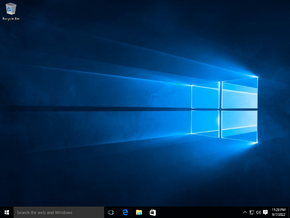Build list legend
Non-existent page
| Version of Microsoft Windows | |
 | |
| OS family | Windows 10 (NT 10.0) |
|---|---|
| Version | 1511 |
| Codename | Threshold 2 |
| Architecture | x86, AMD64 |
| Latest build | 10.0.10586.1540 |
| Release date | 2015-11-12 |
| Support end | 2017-10-10 |
| Replaces | |
| Windows 10 (original release) | |
| Replaced by | |
| Windows 10 Anniversary Update | |
Windows 10 November Update (version 1511, codenamed Threshold 2) is an update for Windows 10, which was released to the public on 12 November 2015 as a relatively minor update to the original release. It contains memory management changes, improvements to the overall UX and numerous enhancements to Microsoft Edge.
It was the first feature update for Windows 10 and it introduced the version number which was in the YYMM scheme where the first 2 digits are the year the update was released and the last 2 digits are the month in which the update was finalized. This would be used up until the May 2020 Update as Microsoft would then adopt the Azure YYHx numbering scheme as the version number for future updates, starting with the October 2020 Update (version 20H2).
This version is also the first to have an RTM build number that cannot be divided by 16,[1] a requirement first introduced during preparation for the Windows Vista RC1 release. This also means that the revision number no longer needs to be 16384 or larger.
explorer.exe shell:::{ED834ED6-4B5A-4bfe-8F11-A626DCB6A921} -Microsoft.Personalization\pageWallpaperexplorer.exe shell:::{ED834ED6-4B5A-4bfe-8F11-A626DCB6A921} -Microsoft.Personalization\pageColorizationPATH environment variable was updated to be more user-friendly.Build list legend